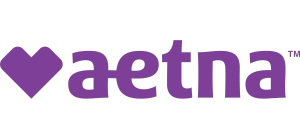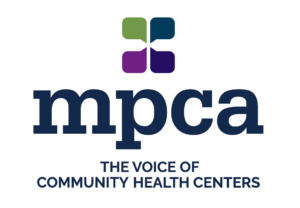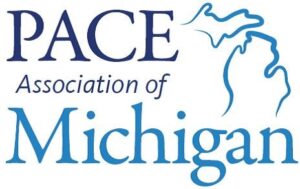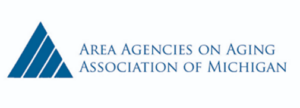Conference Overview
The 2024 Michigan State of Reform Health Policy Conference will once again be taking place in-person at the Lansing Center on April 4th, 2024!
State of Reform pulls together practitioners, thought leaders, and policy makers – each working to improve our healthcare system in their own way – into a unified conversation in a single place. If you are interested in understanding what occurs at the nexus of healthcare policy and politics, then this is the conference for you.
Join us at the Lansing Center on April 4th to discuss the most important health care activities taking place in Michigan. If you have questions or speaker suggestions, please feel free to drop us a line. We’d love to hear from you!
Topical Agenda
Here is our 2024 Michigan State of Reform Health Policy Conference Topical Agenda! This represents input from hours of conversations with our Advisory Panel and stakeholders across the spectrum of Michigan healthcare over the last number of months.
If you have suggestions for speakers, please feel free to drop us a line. We would love to hear your thoughts on this! If you haven’t already, you can register here.
Please note that all agenda times are local.
Networking Breakfast – Sponsored by Enterprise Social Record, LLC
River Street Pub
Opening Keynote
Elizabeth Hertel: Director, Michigan Department of Heath & Human Services
Banquet Room 1 – 4
988 & Crisis: Where Do We Go from Here?
Banquet Room 5
Addressing Racial Disparities in Healthcare
Banquet Room 8
Evaluating the State of Healthcare Coverage
Banquet Room 7
CCBHCs, Integration, & Other Opportunities to Improve Behavioral Health
Banquet Room 7
D-SNPs, LTSS & Integrating Long-Term Care in Michigan
Banquet Room 5
Anticipating Depleted ARPA Funding in Michigan
Banquet Room 8
Networking Lunch
River Street Pub
Implications of Healthcare Workforce Shortages
Banquet Room 5
Efforts to Improve Prescription Drug Costs
Banquet Room 8
Children’s Health & the Role of School-Based Services
Banquet Room 7
Multi-Sector Solutions to Workplace Violence
Banquet Room 8
Efforts to Implement Jail-Based MAT in Michigan
Banquet Room 5
Technology, AI, & Health Data Interoperability in Michigan
Banquet Room 7
Closing Keynote
Michael Cabonargi: Regional Director, Great Lakes Region: Region V, US Department of Health & Human Services
Banquet Room 1 – 4
Reception – Sponsored by Health Management Associates
River Street Pub
Event Sponsors
Major Sponsors




Track Sponsors

Exhibitor Sponsors
Want to sponsor an upcoming conference?
See Sponsorship DetailsNetworking Breakfast - Sponsored by Enterprise Social Record, LLC
The Networking Breakfast, sponsored by Enterprise Social Record, LLC, will take place before the start of the conference to allow attendees to grab a light refreshment and connect with their fellow colleagues before we kick things off for the day.
Opening Keynote
We’re starting the day with a keynote from Elizabeth Hertel, Director of the Michigan Department of Health and Human Services. Grab a seat to hear Hertel update the audience on key MDHHS initiatives and her agency’s long-term goals for Michigan healthcare.
Elizabeth Hertel: Director, Michigan Department of Health & Human Services
988 & Crisis: Where Do We Go from Here?
Michigan has seen success so far in its implementation of 988 services across the state. As mobile crisis initiatives and stabilization units are implemented, how can Michigan continue to provide robust crisis services to patients in need? These experts will discuss the path forward for 988 and crisis response.
Krista Hausermann, LMSW, CAADC: Manager, Crisis Services & Stabilization Section, Michigan Department of Health & Human Services
Jill Smith, LMSW, CAADC: Senior Director, Michigan Crisis & Access Line/988, Common Ground
Grace Wolf, MS, CRC, LCMHC: Vice President, Crisis Care Services, Detroit Wayne Integrated Health Network
Wendy Farmer, LPC, MBA: Regional Vice President of Account Management & Crisis Services, Carelon Behavioral Health (moderator)
Addressing Racial Disparities in Healthcare
This panel will focus on some of the successes Michigan has seen in reducing racial health disparities over the past several years. While work remains, it’s important to examine efforts that have helped close equity gaps in healthcare and apply these demonstrated successes to future initiatives. Join these experts for an in-depth discussion about a timely topic.
Caira Boggs, DHEd, MCHES: Director, Detroit Health Innovations; Director, Center for Health Equity Practice, Michigan Public Health Institute
Brenda Jegede: Leader, Office of Equity & Minority Health, Michigan Department of Health & Human Services
Marjorie Mitchell: Executive Director, Michigan Universal Health Care Access Network (MICHUHCAN)
Tawana Nettles-Robinson: Executive Director, Detroit Market, Trinity Health Michigan
Evaluating the State of Healthcare Coverage
Commercial insurance costs are rising, Medicaid redeterminations are wrapping up, and state leaders are evaluating coverage mandates. Amid all these factors, what does Michigan’s healthcare coverage landscape look like—for both public and private insurance? This panel will discuss the state of healthcare coverage and the best strategies for getting uninsured Michiganders covered.
Michelle Beebe: Chief Revenue Officer, Small Business Association of Michigan
Rep. Brenda Carter: Chair, Michigan House Insurance & Financial Services Committee
Karin Gyger: Chief Deputy Director, Michigan Department of Insurance & Financial Services
Kathleen Nolan: Senior Regional Vice President, Health Management Associates (moderator)
CCBHCs, Integration, & Other Opportunities to Improve Behavioral Health
State leaders are proposing a funding increase for Certified Community Behavioral Health Clinics (CCBHCs) after the model has yielded success in its first few years of operation. The state has also increasingly prioritized integrating physical and behavioral health. This panel will discuss how these efforts and others can continue promoting high–quality, accessible behavioral healthcare in Michigan.
Phillip Bergquist: Chief Executive Officer, Michigan Primary Care Association
Lauren LaPine, MPH: Senior Director, Legislative & Public Policy, Michigan Health & Hospital Association
Jennifer McCarty: Vice President of Operations & Chief Operating Officer, Genesee Health System
Lindsey Naeyaert, MPH: State Administrative Manager, Michigan Department of Health & Human Services
Jeff Greshak: Principal, Health Management Associates (moderator)
D-SNPs, LTSS & Integrating Long-Term Care in Michigan
The State of Michigan is soliciting proposals for Dual-Eligible Special Needs Plan (D-SNP) providers this year to integrate Long-Term Services and Supports (LTSS) with dual-eligible services. How will this change the long-term care landscape in the state? Join this expert panel for a deep dive into a very pertinent issue for Michigan’s health sector.
Luke Reynolds: Board Chair, PACE Association of Michigan
David Rogers: President, Independent Living Systems
Christine Vanlandingham: Chief Executive Officer, Region IV Area Agency on Aging
Shane Spotts: Principal, Health Management Associates (moderator)
Anticipating Depleted ARPA Funding in Michigan
Various critical programs in Michigan face funding cliffs as financial support from the American Rescue Plan Act (ARPA) nears depletion. Health leaders are eager to ensure the individuals relying on ARPA-funded services continue to receive treatment after funding runs out. During this panel, hear about where Michigan goes from here from some of the leaders most involved in ARPA fund distribution.
Adam Carlson: Senior Vice President, Advocacy, Michigan Health & Hospital Association
Kyle Jen: Director, Alvarez & Marsal
Robert Widigan: Chief Deputy Financial Officer, Wayne County
Andrew Schalk: Senior Consultant, Health Management Associates (moderator)
Networking Lunch
Implications of Healthcare Workforce Shortages
Michigan has poured immense resources into growing and retaining its healthcare workforce in recent years. Though much of this work has yielded success, the workforce shortage persists as a top issue for the state’s healthcare sector. Grab a seat at this panel to hear about how healthcare workforce shortages are impacting the state and the most promising approaches to the issue moving forward.
Laura Appel: Executive Vice President, Government Relations & Public Policy, Michigan Health & Hospital Association
Brian Babbitt: Chief Executive Officer, North Country Community Mental Health
Craig Donahue: President & Chief Executive Officer, Michigan Health Council
Katie Pontifex, BS, BSN, RN, CMSRN: Associate Executive Director of Healthcare Practice, Policy & Strategic Initiatives, Michigan Nurses Association
Dave Schneider: Managing Principal, Health Management Associates (moderator)
Efforts to Improve Prescription Drug Costs
Rising prescription drug costs continue to be a key challenge for Michiganders. The state is pursuing initiatives like Canadian drug importation and the creation of a Prescription Drug Affordability Board to help combat this issue. What are the implications of these programs, and will they be enough to ensure critical medications are accessible for patients? These leaders will talk through the state’s efforts to make prescription drugs more affordable.
Michael Cabonargi: Regional Director, Great Lakes Region, Region V, U.S. Department of Health & Human Services
Rep. Alabas Farhat: State Representative, District 3, Michigan House of Representatives
Dominick Pallone: Executive Director, Michigan Association of Health Plans
Eric Roath, PharmD, MBA: Director of Governmental Affairs, Michigan Pharmacists Association
Children’s Health & the Role of School-Based Services
In the aftermath of the pandemic, state leaders have placed an increased focus on children’s health. School-based services play a critical role in ensuring youth receive the care they need as they navigate physical and behavioral health challenges. These experts will discuss the state of children’s health in Michigan and how to best leverage school-based services.
Taggert Doll: Section Manager, Child & Adolescent Health Services, Michigan Department of Health & Human Services
Scott Hutchins: School Behavioral Health Unit Supervisor, Michigan Department of Education
Evilia Jankowski, MSA, BSN, RN: State School Nurse Consultant, Michigan Department of Education
Natalie Kasiborski, PhD, LMSW, MPH: Assistant Professor, Michigan State University
Amy Zaagman: Executive Director, Michigan Council for Maternal & Child Health
Multi-Sector Solutions to Workplace Violence
The health sector has raised concerns about rising levels of violence directed towards healthcare workers. The issue impacts a wide range of providers, from hospital staff to home-based care providers. This panel will explore how leaders from various areas of healthcare can collaborate to minimize the rate of healthcare workplace violence and establish safer working spaces for healthcare workers.
Rep. Kelly Breen: State Representative, 21st House District, Michigan House of Representatives
Jamie Brown, BSN, RN, CNRN: President, Michigan Nurses Association
Seth K. Karnes: Senior Director of Risk, Consulting, & Training, HSS/Tarian
Hailey Olsick, BSN, RN: Critical Care Nurse, McLaren Bay/SEIU
Michelle Peña, MSN, RN, NEA-BC: Chief Nursing Officer, Trinity Health Grand Rapids
Efforts to Implement Jail-Based MAT in Michigan
To support incarcerated Michiganders struggling with opioid use, Michigan health leaders have prioritized the implementation of jail-based medication-assisted treatment (MAT) services. What progress has the state made in this area, and what work remains? This unique panel will evaluate the path forward for offering MAT services in the carceral setting.
Jeffrey Cook: Undersheriff, Eaton County Sheriffs
Richard Fuller: Sheriff, Kalamazoo County Sheriff’s Office
Jared Welehodsky: State Assistant Administrator, Michigan Department of Health & Human Services
Rich VandenHeuvel: Principal, Health Management Associates (moderator)
Technology, AI, & Health Data Interoperability in Michigan
The impact of new technologies and the growing role of artificial intelligence is a key interest for Michigan health policy stakeholders. These leaders will discuss the benefits and downsides of AI and other new technologies, how to ensure their safe use, and the role they can play in health data interconnectivity in the state.
Kimberly Bachelder: Director of State Accounts, Michigan Health Information Network Shared Services
Jim Lee: Senior Vice President of Health & Data Policy, Michigan Health & Hospital Association
Scott Monteith, MD, DLFAPA: Medical Director, Network180
Trey Sutten: Chief Executive Officer, Siftwell
Jim McEvoy: Data Analytics Resources Director, Health Management Associates (moderator)
Closing Keynote
Join us for a Closing Keynote with Michael Cabonargi, Director of Region V at the US Department of Health & Human Services. Cabonargi will update the audience on federal health policy initiatives, how they impact Michiganders’ healthcare, and what to expect from HHS looking ahead to the rest of 2024.
Michael Cabonargi: Regional Director, Great Lakes Region: Region V, US Department of Health & Human Services
Reception - Sponsored by Health Management Associates
Please join us following the Closing Keynote for a Networking Reception, sponsored by Health Management Associates. Drinks and hors d’oeuvres will be included, giving attendees a wonderful opportunity to follow up on the discussions we’ve had throughout the day.









